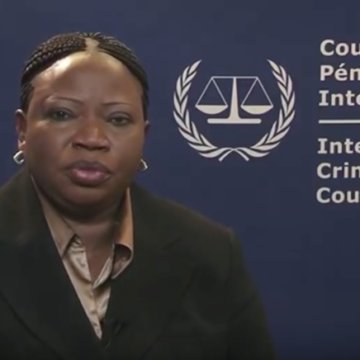- About
- Topics
- Picks
- Audio
- Story
- In-Depth
- Opinion
- News
- Donate
- Signup for our newsletterOur Editors' Best Picks.Send
Read, Debate: Engage.
| located: | Afghanistan |
|---|---|
| editor: | Shadi Khan Saif |
For years, decades in fact, the flag bearers of global justice seem to have turned a blind eye to the killing spree going on in Afghanistan, situated on the strategic juncture between central and south Asia. The International Criminal Court (ICC) has at last demonstrated some signs of willingness to take the cases of war crimes, crimes against humanity or genocide head-on.
On Friday 03 November, Fatou Bensouda, prosecutor of the ICC, announced that she will ask the court’s judges to open an investigation into possible war crimes and crimes against humanity in Afghanistan committed since May 1, 2003, when Afghanistan became a member of the court. She also identified the ICC’s jurisdiction over possible war crimes “closely linked to the situation in Afghanistan” on the territory of other ICC member countries.
This one small step is indeed worth the equivalent of a giant step for putting an end to the prevailing culture of impunity and raging violence that is taking its toll on the civilians often caught in the cross-fire. The dateline in sight of 2003 and onwards would arguably mean that mainly the Taliban and other rebel groups such as the so-called Islamic State would come under the ICC radar, but it is equally important, if not more so, to hold the warlords who are now on the side of the Afghan government accountable.
The atrocities committed by the Mujahedeen factions in internal clashes for turf in the 1990s turned the capital into ruins. And, following the fall of the Taliban, the forces that grabbed the reins of power with the support of the US military power have been charged with gross violations of humanity in their treatment of the Taliban prisoners – particularly in the north of the country.
More than 10 years ago, the International Criminal Court began its preliminary analysis in Afghanistan – the phase to determine whether there are possible ICC crimes and if the court should act. The Human Rights Watch (HRW) has acknowledged that in the meantime, there have been countless summary executions, forced disappearances, acts of torture, and suicide attacks on civilians in the country.
These abuses have largely gone unchecked, but it is pivotal for the rule of law and culture of justice to prevail and some sort of stability in the war-ravaged country that records are set straight and those proven guilty are held accountable.
